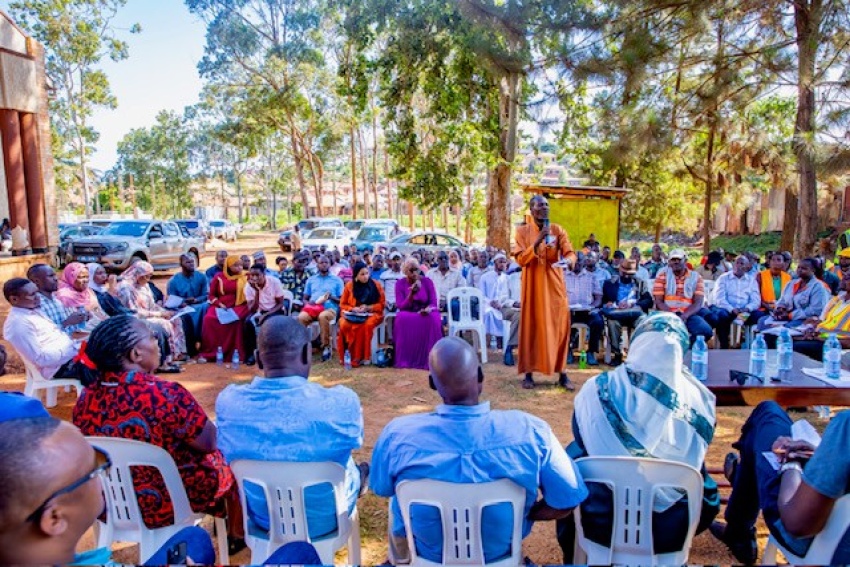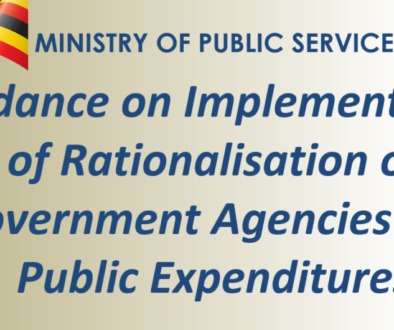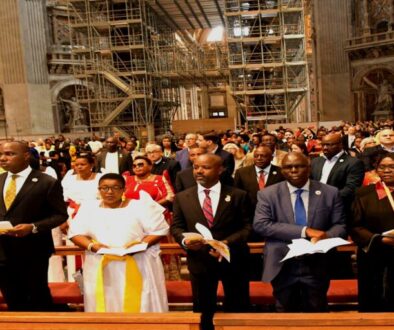KCCA trains locals on air pollution

By Our reporter
KAMPALA – Taking personal responsibility in fighting air pollution is becoming a rallying cry in Kampala. Kampala Capital City Authority (KCCA) has organized a two-day training for its staff on air quality management. The training delved into the dire consequences of both short- and long-term exposure to air pollution, linking it to a range of diseases such as stroke, chronic obstructive pulmonary disease, and various cancers.
World Health Organization (WHO), evidence suggests that air pollution exposure is also linked to conditions like type 2 diabetes, obesity, Alzheimer’s disease, and dementia.
To confront this challenge head-on, the training included visits to Kampala’s air quality monitoring sites, offering participants a first-hand look at the city’s pollution sources and ongoing efforts to combat them.
One notable visit was to Makerere University, where the AirQo project, spearheading air quality improvements across Uganda and Africa, is based.
Here, participants learned about the advanced technologies and methodologies employed in monitoring air quality, as well as the alarming statistics depicting Kampala’s air pollution levels.
Professor Engineer Bainomugisha, leading the AirQo Project, emphasized the importance of individual responsibility in ensuring clean air.
Starting from homes, individuals were encouraged to embrace green mobility, green energy, planting trees among other aspects that improve air quality.
Angela Nshimye further underscored this during her presentation, highlighting the essential elements of an effective air quality management program: continuous monitoring, identifying pollution sources, and implementing targeted interventions.
According to a study by AirQo, Kampala’s primary air pollution sources include residential combustion, transportation, dust, industry, and waste burning.
These findings emphasize the need for comprehensive strategies targeting each pollution source. Kampala’s average air pollution level of 37 micrograms per cubic meter exceeds the recommended standards, further emphasizing the urgency of action.
In response, Uganda has launched national air quality regulations and a city air quality action plan. These initiatives focus on reducing pollution through measures like waste reduction, increasing green spaces, dust reduction through road paving, and promoting sustainable mobility options.
Dr. Richard Walyomu from the KCCA Directorate of Public Health and Environment applauded the participants’ active engagement and stressed the importance of public awareness in combating air pollution.
Dr. Alex Ndyabakira echoed the urgency of the situation, emphasizing that climate change is exacerbating global air quality challenges.
The collaborative efforts of projects like AirQo and the insights gained from monitoring sites are crucial in Kampala’s ongoing battle against air pollution.
On a sunny Friday afternoon, the community members along Salaama Road in the Makindye Division gathered at St. Potiano Catholic Church for an important meeting organized by the Kampala Capital City Authority (KCCA).
The focus was on engaging Project Affected Persons (PAPs) and other stakeholders on the developments regarding the ongoing reconstruction of Salaama Road.
The construction works have already commenced, beginning with forward maintenance and the relocation of utilities such as water pipes, telecom lines, and power lines.
This road, a critical artery leading to the vital Kiruddu Hospital and the Munyonyo area, is being reconstructed as part of the broader Kampala City Roads Rehabilitation Project (KCRRP), funded by the government of Uganda, which includes the construction of at least 40 roads.
The 8.15-kilometer project has garnered widespread support from both local leaders and residents, all of whom are highly optimistic about its potential to bring about transformative changes in their area, aligning perfectly with its intended goals.
Among the prominent figures in attendance was the Mayor of Makindye Division, Ali Kasirye Nganda Mulyanyama. In his address, Mulyanyama urged the community to embrace and support this transformative initiative.
He emphasized the crucial role of community involvement and called on parents to educate their children about HIV prevention, underscoring the multifaceted benefits of the project beyond mere infrastructure improvements.
Mulyanyama also expressed his satisfaction with the concurrent skilling projects and the planned construction of public toilets, highlighting how these efforts align with broader development goals.
“This road is more than just a pathway; it represents progress, health, and a brighter future for our children,” he remarked.
Zahara Luyirika, the KCCA Council Speaker, echoed the Mayor’s sentiments, emphasizing the importance of transparency and accountability.
“Let everyone keep an eye on this project so that we get a better deal on this road,” she urged.
Luyirika’s call for active community monitoring resonated with the attendees, reinforcing the collective responsibility towards ensuring the project’s success.
Among the voices of approval was Makindye Division NRM Chairperson Lukyamuzi, who commended the government for initiating the long-awaited construction.
“We have patiently been waiting for this project, and I’m happy it is taking off,” Lukyamuzi stated, reflecting the community’s anticipation and hope for the future.
Beyond the immediate improvements to transportation infrastructure, the Salaama Road project is set to uplift the local community through various developmental initiatives.
Gerald Ahabwe a Social Development Specialist of KCCA elaborated on the KCRRP’s significant focus on skilling youth and women in the area.
“More than 400 people will be trained in business skills, literacy, construction, and electricity,” Ahabwe said.
This initiative aims to empower the local community, providing valuable skills that promise future employment opportunities and economic growth.


